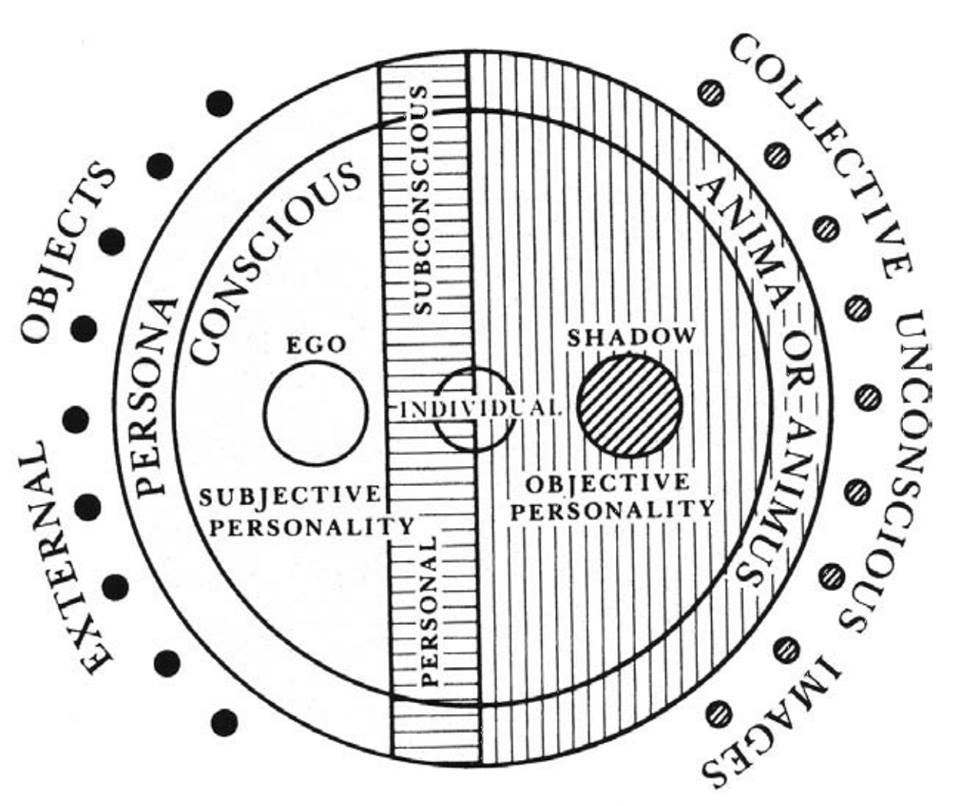Identity
Five-Week Online Programme

A psychoanalytic lecture series on the search for authentic & uncorrupted identity in a psychotic age.
The denouement of the search for Self is identity. An identity in which the subject experiences Him/Her/Their self as being that which He/She/They were meant to be. In psychoanalysis this entails the shedding of a false self or identity. In non-dualist teaching this involves seeing beyond the veil of ‘Maya’ (illusion), a false view of the world. What we know is that identity and world are intimately, and arguably inextricably, bound up. Increasingly today with the “New Media Invasion” (John David Ebert) the subject’s world and identity are corrupted by algorithmically manipulated market forces that polarise, categorise and reinforce narrow and corrupted forms of identity and identity politics. Whilst the subject remains identified with something incongruent and antithetical to His/Her/Their essential and authentic self, He/She/They remains legitimately distressed. This legitimate distress is experienced in response to an illegitimate identity and consequent mode of being. In Jungian parlance this quest for authentic identity is the process of “individuation.” The individuated subject is one whose identity is congruent with values He/She/They legitimately possesses. Values (desires and beliefs) that are emergent from the Self and are not the appropriation of and subjugation by an external ideology.
The deepest form of despair is to choose to be another than himself.
– Kierkegaard
The Programme
All speakers will open up the series on October 17th, with a panel on Identity and its discontents in our era, to be followed by individual lectures in the following weeks, and convened with a final panel to answer the problem posed in the opening lecture. These are all live and interactive webinars, which take place every Saturday for the duration of the programme (17h00 BST, 12h00 Eastern, 09h00 Pacific) and are recorded for later viewing for those unable to attend live.
October 17
The Erosion of Identity in a Psychotic Age (Introductory Group Panel)
October 24
Identity, Loss and Recovery (John David Ebert)
October 31
Everyday Psychosis and Identity as Sinthome (Peter Merritt Dobey)
November 7
The Freak, and Jung’s Second Personality (Stephen Anthony Farah)
November 14
Becoming the Übermensch (Concluding Group Panel)
Applications and Student Forum
The five-week programme includes five psychoanalytic applications, one each week, for students to investigate the question of identity in relation to their own subjective position. These applications and student interaction are facilitated by faculty members and take place on a private Facebook page.
Faculty
Peter Merritt Dobey
is a psychoanalyst and artist. Peter underwent training analyses in France, Ireland, and Berlin and has an MA in Lacanian Psychoanalytic Psychotherapy from Independent colleges, Dublin. Formerly, he was head editor of San Francisco Arts Quarterly, and has written for numerous publications, on art, philosophy and psychology. More recently, he established Psychoanalysis for Artists, a clinical practice devoted to the lives of contemporary artists, which is inspired by a lifetime of being homeschooled as an artist and from being mentored by the artist Christian Boltanski in Paris. More information is available at PsychoanalysisForArtists.com.
Stephen Anthony Farah
is the co-founder and Head of Learning of The Centre for Applied Jungian Studies South Africa. He is an executive member of the International Association of Jungian Studies. Stephen holds an honours degree in analytical philosophy from the University of the Witwatersrand and a master’s degree in Jungian and Post Jungian Studies from the University of Essex. He is the author of ‘True Detective and Jung’s four stages of Transformation’ in The Routledge International Handbook of Jungian Film Studies (2018). Stephen’s areas of interest include psychoanalysis, film, the philosophy of language, consciousness, individuation, and the simulation hypothesis.
John David Ebert
is a cultural critic, poet and philosopher who has written over 30 books on various issues such as understanding contemporary art, global warming and catastrophe, the cult of the dead celebrity, movies, graphic novels and literature. He has over 800 videos on You Tube examining the works of various thinkers such as Deleuze and Guattari, Heidegger, Oswald Spengler, Alain Badiou, etc. He is the author The Autobiography of John David Ebert, The New Media Invasion, Art After Metaphysics, Dead Celebrities Living Icons and poetry collections such as Gravity Girl, Gilgamesh Redux and Archai, a history of the evolution of life on this planet.

